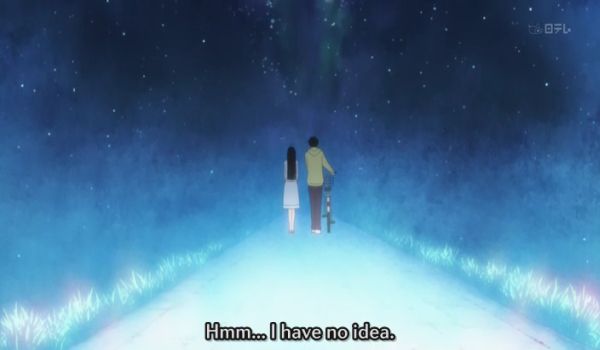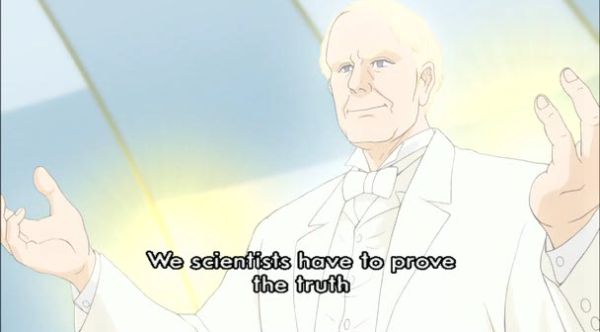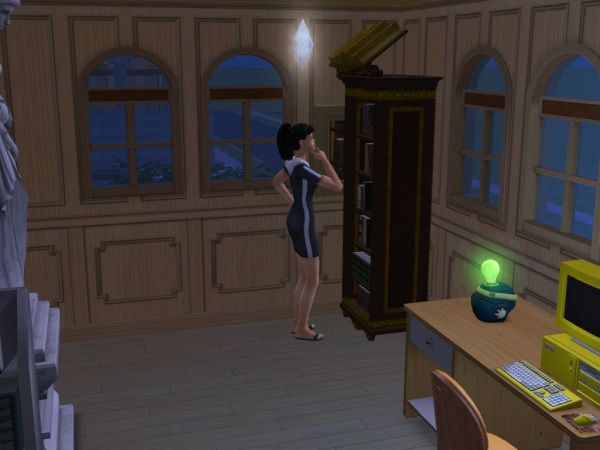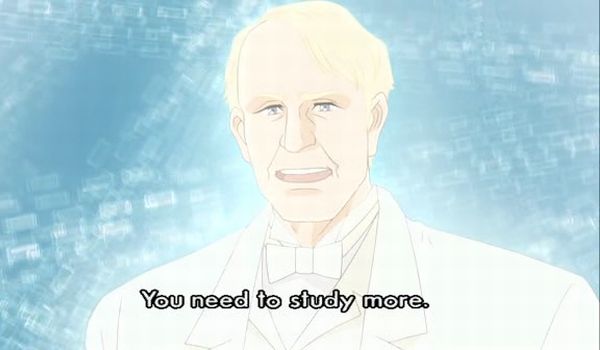The raging fire inside translates into a pleasant warmth when you pass by it.
The summer was cooler (in temperature, I mean) than I am used to. Some people blame the volcanic ash cloud from Iceland. Certainly the autumn has also come faster than usual, although we have had no snow yet and only a couple nights of frost. The thermometer in my living room soon went down to 15 degrees Celsius (59 degrees Fahrenheit) and has pretty much stayed there for about a month. It has not gone much below that, even after cold nights. It is as if the house cannot really believe it can get colder in the living room while there are people living in it.
But I don’t live in the living room, I live in the home office. And in the bedroom at night. The home office is still heated enough by the computers, when I keep the door closed. Although today is is just barely.
And today, the living room thermometer went below 14 degrees C (57F). So I fired up the wood stove again.
It is more like a test run, really. I am not going to heat the whole house pleasantly warm throughout winter, but I intend to burn wood every day to help keep the pipes from freezing. That is not really a problem yet, probably not for several weeks.
I first put some balled-up newspaper pages in the stove, then put in an empty yogurt carton filled with other, flattened cartons to a compact mass. This burns like a very porous wood and is a great way to get a fire started. After a while I returned and put wood on. Â By then, there was only embers, and they seemed to like it that way. So I found a drinking straw and used it to blow on the embers. Soon they flared into an intense flame, easily igniting the wood. It has been burning since, with the occasional new piece of wood thrown in.
***
And this, dear congregation, is my text today. Because something similar happened to me. I have gotten my hand on the book The Intellectual Life by A G Sertillanges. It is an old book, the last foreword by the author from 1934, and the book had already been in print for a good while by then. It may be around a century old, or nearly so. Â It is certainly from a time when there was no contradiction between the words “intellectual” and “Christian”, rather the author seems to assume that any serious intellectual would also be a Catholic or at least a Christian.
How did we get from there to here? Â I don’t know. It happened before my time, I believe, or at least before I started thinking about such things.
Be that as it may, the book bears a striking resemblance to parts of the writing of Ryuho Okawa, more exactly his writing about Wisdom, one of the four pillars of the “modern four-fold path”: Love that gives, Wisdom, Self-reflection and Progress. Â Okawa’s view of wisdom is so strikingly similar to the older book that I am certain he must have read it, and it must have resonated within his heart as it does in mine. Â Then again Mr Okawa supposedly reads about 1000 books a year, so it is no wonder if he has read this. And if he has, it is no wonder it made a deep impression on him. It probably would on anyone able to work through its somewhat dense language.
Yes, Sertillanges writes for the intellectual, and he does not bother to make it easy to read. Why would he? Intellectuals should be accustomed to heavy reading. His writing is quite a bit harder to read than mine, whereas Okawa can probably be read even by 12 year olds if they are interested in the subject matter.
I have not read far yet. I hope to write more about the book once I have finished it, or at least read a goodly part of it. Â But the effect was very much like blowing on embers. Â My desire for a life of the spirit flared up, and with it a willingness to spend more of my time and my thought on higher matters. That means, among other things, that I won’t be punishing those treacherous Greeks in Civilization V tonight. ^_^ Or anytime soon, I suppose.
Not that there is anything wrong with playing Civ5. To quote Okawa, whose latest book I reread a bit of later today: “For example, if you wish to graduate from university with good grades, find a good job, and be successful in society, you cannot spend all your time gambling. This might be fine if you intend to live the life of a professional gambler or if you want to gamble moderately, work moderately, and live a moderate life. If you have high aspirations and need to concentrate on achieving them, however, you must give up your gambling activities, even if you enjoy them.” If you replace gambling with gaming, you’ll see what I mean. Do I wish to live a moderate life, or do I have higher aspirations? That’s where the fire of the heart comes in.










